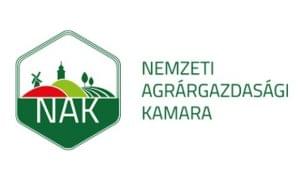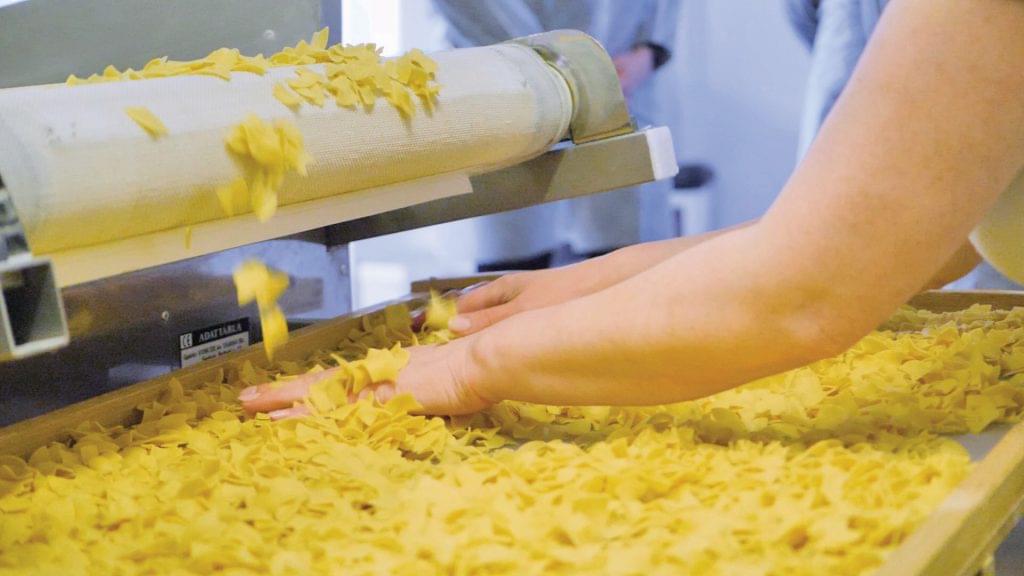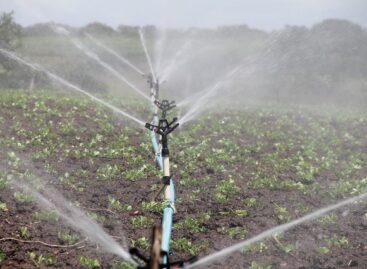Balázs Győrffy: “Food industry is a sector of strategic importance”
Our magazine interviewed Balázs Győrffy, president of the Hungarian Chamber of Agriculture (NAK).

– How did the coronavirus pandemic affect the agri-food sector last year?

Balázs Győrffy
president
Hungarian Chamber of Agriculture (NAK)
– 2021 was very different from 2020, because it was easier for companies to find the solutions to their problems. Still, they had to overcome many difficulties. I think it is very important to underline here that the past few years proved: agriculture and the food industry are sectors of strategic importance. NAK keeps monitoring the sector and what we saw was that different actors were affected differently. There was no food shortage, in spite of the fact that the first wave of the pandemic was a big blow. Consumption habits also changed and this – together with the fluctuation in consumer demand – posed great challenges to food businesses,
– Did agriculture suffer less than the food industry during the pandemic?
– With the exception of a few product paths, which are more exposed to what is happening in the HoReCa sector, agricultural production suffered more from other things than the pandemic, such as weather extremities, the African swine fever virus and the bird flu.
– What is the impact of the Russia-Ukraine conflict on the sector? Has the European Union reacted well?
– I believe that the most important thing is to make sure that every condition is provided to agri-food businesses for remaining competitive. We have already said it before that the requirements laid down in the Green Deal must be eased, as they limit production but they don’t result in a significant lowering of greenhouse gas emissions. The coronavirus pandemic has showed how important it is to have a secure domestic food supply chain. It is essential from the perspectives of both the Hungarian food industry and Hungarian consumers to satisfy the needs of the domestic market, making the country more self-sustainable.
– How can the food industry return to normal in the post-pandemic period?
– The government understands and likes the countryside, respecting and helping the people working in agriculture. NAK was among the first in 2018 to stress the importance of increasing co-financing in the agri-food sector at a national, EU member state level. It was a big success to increase this to 80%, by this creating an historic opportunity for development. As for processing, the main goal is increasing efficiency, competitiveness and profitability. NAK has been participating in the work of developing the priorities of the Common Agricultural Policy (CAP). We played a role in acquiring considerable development funding for the food industry too, which will be granted as part of the Rural Development Programme – with a budget of HUF 250bn for 2021, 2023 and 2025 each.

The increase in the prices of input materials and energy carriers affects everything
– NAK’s Food Industry Directorate is always busy and does very important work. Could you summarise your development plans for 2022?
– We are working with the interests of our nearly 400,000 members in mind. Soon we will launch an online platform, which is going to help farmers and food companies find a market for their products – this new platform will bring the NAK marketplace and our market and product search websites under one roof. NAK also participates in developing the criteria for the High Quality Food (KMÉ) trademark system. Candidates can already apply for a trademark for 22 different products in 5 categories. Consumption trends are creating new challenges for NAK members, so we try to help them by conducting surveys, based on the results of which they can set the best innovation directions for themselves.
– What activities and programmes do you plan for 2022?
– We are going to expand the “Let’s learn together!” programme, and we will organise workshops – involving the online channel. NAK has also started cooperating with the Hungarian Export Promotion Agency (HEPA) to help members find new export markets. For facilitating their domestic market entry, we are hosting supplier forums with retailer partners being present. //
Related news
NAK: farmer needs assessment can help the development of irrigation training
🎧 Hallgasd a cikket: Lejátszás Szünet Folytatás Leállítás Nyelv: Auto…
Read more >Not a turnaround, but consolidation: an agricultural outlook for 2026
🎧 Hallgasd a cikket: Lejátszás Szünet Folytatás Leállítás Nyelv: Auto…
Read more >Related news
The Store of the Future opens again at the SIRHA Budapest exhibition! (Part 1)
🎧 Hallgasd a cikket: Lejátszás Szünet Folytatás Leállítás Nyelv: Auto…
Read more >Cheese-cocoa-peach jam: these are the most popular cookie flavors
🎧 Hallgasd a cikket: Lejátszás Szünet Folytatás Leállítás Nyelv: Auto…
Read more >









